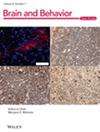Differential Speed and Accuracy Trade-Off in Working Memory Retrieval and Bilateral Precuneus Between Older Men and Women
Abstract
Background
Despite various hypotheses, including differences in longevity, hormones, genetics, and neuroanatomy, the reasons for the higher prevalence of Alzheimer's disease in older women compared to men remain unclear. Emerging evidence suggests that the precuneus, a key region of the default mode network, is linked to internally focused processes like memory retrieval. We examined the relationship between precuneus volumes and task performance (accuracy and reaction time) during working memory retrievals in cognitively normal older adults.
Method
A cohort of older participants (N = 45; 25 women; Mage = 77) from the University of Kentucky Alzheimer's Disease Research Center (UK-ADRC) performed the modified delayed match-to-sample working memory task while undergoing functional magnetic resonance imaging in a 3T Siemens scanner.
Result
We found the accuracy of working memory retrieval correlates more frequently with the left precuneus in women (r = 0.54; p < 0.05) than in men. Similarly, volumes in the left precuneus displayed a significant negative correlation with reaction time in response to memory target (r = −0.426; p = 0.038) and memory distractor (r = −0.549; p < 0.01) in women. There is a sex difference in the accuracy and speed trade-off. While men were faster in reaction time, women were better at the accuracy of the memory task. We found no sex differences in the percentage of fMRI signal change across reaction time in response to the memory target for men (R2 linear = 0.011) and women (R2 linear = 0.003). Particularly noteworthy was the consistent association in women, where neurocognitive measures (trail A, r = −0.50; p = 0.010; trail B, r = −0.06; p = 0.002) reliably correlated with volumes in the left precuneus—a relationship not observed in men.
Discussion
Our findings suggest that the left precuneus volume is associated with processing speed and accuracy of working memory performance, especially in women. Given that the left precuneus plays a key role in supporting various aspects of cognition, including memory retrieval, our findings point to the potential of reaction time serving as a surrogate marker for functional MRI in predicting cognitive decline, particularly in older women.


 求助内容:
求助内容: 应助结果提醒方式:
应助结果提醒方式:


